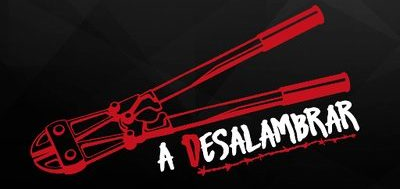 |
The campaign to boycott Israel on the right way
herien mundurantz
euskal herria internazionalista
boga!
The “Bilbao Initiative” was celebrated quite recently, during the 29th, 30th and 31st October; in it, the people were called to a reunion of civil society, a space and a process in which the people of Palestine and the anti-colonial civil society organisations of Israel shared views and talked about the challenges that we face at developing an effective way of coordinating solidarity campaigns which would work for Palestine and to achieve a just peace.
The most important and positive consequence of this initiative is, without a doubt, that there has been an agreement from those involved in the solidarity with Palestine that there is a campaign of total boycott to the state of Israel in every aspect. As people of Askapena, we consider this to be a step forward which we give a very positive value to.
Why?
The Basque initiative “Boycott Israel” came to be known two years ago by individual activists and members of internationalist organisations such as Komite Internazionalistak and Askapena; we knew that we had a long road ahead of us, and it is worth mentioning that the Palestinian people compare this campaign to that of the international boycott campaign against the Apartheid South African state’s regime, and that campaign lasted almost forty years.
Only two years ago it was almost impossible to imagine a boycott campaign against Israel that would touch into the wide array of politics, academic, cultural, sport events etc, the questions that were asked were: would people understand the campaign? Would they be in favour of it? Would it be successful?
Various factors showed its ugly head to this campaign:
Israel has invested, invests, and will invest more money each time in the campaign for its image.
Israel carries out this campaign with the complicity of all “western” countries: aid is given not only for economic, political and military purposes but also, for cultural relations, academic, and sport events, etc with “western” countries and Europe still positioned in their privileged place.
The consequence of this civil society’s boycott campaign would be that it will meet head to head with its own institutions, companies, universities, cultural and sport events organisations, media communications of capital etc.
The boycott deactivation is seen as a way of fighting and solidarity.
Nevertheless, as someone had mentioned before “the only lost battle is that which has not taken place”, or “to see things as impossible is not enough reason to stop trying, not to try is what it makes us see them as impossible”.
During these two years, six Basque city-halls have approved the boycott against Israel. There have been important strikes against musical and sport events, leaflets were distributed before cinemas that were playing Israeli movies, street performances have also taken place, and in the sixtieth anniversary of the nakba there were dozens of protests in the Basque country with the theme “Boycott against Israel”.
These initiatives, mobilisations and protests have generated a growing social debate and they have put to the fore the nature of the state of Israel, the situation of Palestine and the solidarity that we owe to it: the first objective has been met. During these two years, we have debated with organisations, city-halls, sport clubs…we have stood boos and abuse from the public, but as we have mentioned before, the first objective has already been met.
We now need to gain new perspectives and new additions; in this case, the “Bilbao Initiative” has been utmost important.
Before and after
You only need to take a look at the signatures of those who have contributed to the conclusions, to realise that indeed many organisations have taken part in this boycott campaign against Israel, in which the argument has been a success, albeit theoretically. It is a victory of the Palestine organisations and its civil society.
It has been hard but in the end as Omar Barghouti pointed out, we have concluded that those who want to show solidarity to Palestine should know how to demonstrate this and should not have to meet any conditions or criteria to do so.
The so called Euro-centralism has lost a battle.
And now what?
From Askapena’s point of view we are now more than happy with this new situation: more Basque and European organisations are united in favour of this boycott. The more organisations join in, the better; let it expand and put pressure to Israel so that it accepts a just peace by recognising the Palestinian state and its rights, the end of apartheid, the return of the refugees and the end of the occupation.
How do we work? In reality, this common cause is located in Palestine, in those who started moving the campaigns against Israel and from here we only need to count with the good will and idiosyncrasy of each one of us. We would be happy to work with any other organisation that wants to join in this boycott campaign.
If Argala had said “the countries which prevail over capitalism set the premises for the extension of the global socialist revolution, and as such, they lead with example.

